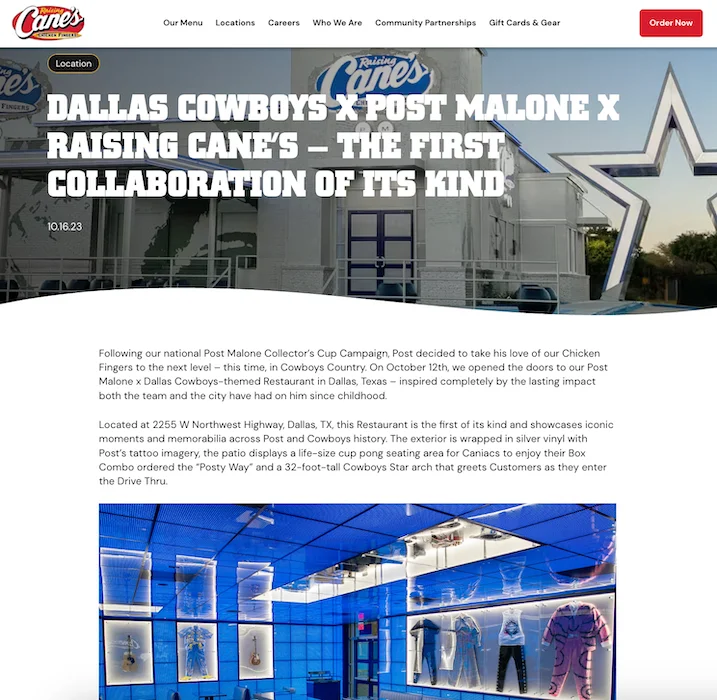Picture this: You’re scrolling through Facebook and see two ads for local plumbing services.
- The first shows flashy graphics promising “LOWEST PRICES GUARANTEED!”
- The second features a photo of the owner in uniform, mentions his 15 years of experience, displays his Better Business Bureau rating, and includes a testimonial from a satisfied customer.
Which one would you trust with your home’s plumbing emergency?
If you chose the second ad, you’ve just witnessed the power of ethos in digital advertising. Data shows that while 81% of consumers need to trust a brand before considering a purchase, only 39% of consumers actually trust advertising overall. This trust gap represents both a massive challenge and an incredible opportunity for small business owners who understand how to build credibility through their digital marketing.
In this article, we’ll explore how ethos—one of the three classical modes of persuasion—can transform your digital advertising from ignored interruptions into trusted recommendations.
Contents
What is ethos?
Ethos, first described by Aristotle over 2,000 years ago, focuses on the credibility and character of the messenger. While pathos appeals to emotions and logos relies on logical arguments, ethos answers the fundamental question every potential customer asks: “Why should I trust you?”
In the context of digital advertising, ethos means demonstrating that your business knows what it’s talking about and can be trusted to deliver on its promises. This credibility is built through three essential pillars:
- Character involves showing integrity, honesty, and moral standards in your messaging. This might mean admitting when you’re not the right fit for a customer or being transparent about your pricing and processes.
- Competence demonstrates your expertise, knowledge, and skill in your field. This could include showcasing certifications, years of experience, specialized training, or industry recognition.
- Care reveals genuine concern for customers’ needs and well-being, showing that you prioritize their success over your own profit.
Traditional “salesy” advertising often falls short because it focuses exclusively on what the business wants—more sales, more customers, more revenue. Ethos-driven advertising flips this script by first establishing why the business deserves the customer’s trust and attention.
The digital environment creates unique challenges for establishing credibility. Online, potential customers can’t visit your physical storefront, meet you face-to-face, or rely on traditional trust signals like location and appearance. Without these conventional credibility markers, your digital advertising must work harder to establish trust, making ethos not just helpful but essential for small businesses competing in digital spaces.
🧠 Marketing psychology can help you capture more customers. Use it to your advantage with our free guide >> 26 Brilliant Ways to Use Psychology in Your Copywriting (with Examples)
The science behind why ethos works: Data and statistics
The numbers tell a compelling story about the importance of trust in consumer decision-making.
Personal recommendations from friends and family remain the most trusted advertising channel, which explains why word-of-mouth marketing continues to be so powerful. In fact, McKinsey & Co. reported that word-of-mouth is the primary factor behind 20-50% of all purchasing decisions.
However, digital channels often score significantly lower. This trust deficit in digital advertising creates both a problem and an opportunity. Businesses that can successfully establish credibility in their digital ads gain a significant competitive advantage over those relying on traditional promotional messaging.
From a conversion perspective, credible advertising leads to higher conversion rates and lower customer acquisition costs. When potential customers trust your message, they require less convincing and move through the sales funnel more quickly. This reduced friction translates directly into improved return on advertising spend.
Trust also creates a neurological advantage. When audiences perceive credibility, their brains process information more favorably and retain positive impressions longer. This means ethos-based advertising doesn’t just drive immediate action—it builds lasting brand recognition and preference.
For small businesses, investing in credibility-based marketing yields better long-term returns. While a flashy discount ad might generate immediate sales, credibility-building content creates brand equity and increases customer lifetime value. This makes ethos particularly valuable for small businesses that rely on repeat customers and referrals for sustainable growth.
🕵️♀️ Want to understand who you should be targeting with your marketing? Download the guide >> How to Find Your Target Audience [Simple Steps!]
Real life ethos examples in ads
Let’s examine how actual small businesses are using ethos to build trust and drive results through their digital advertising.
1. Community engagement
Demonstrating community engagement ethos means sharing some element of your background with your audience: your expertise, your passion, your reason for doing what you do. In this case, a personal interview is a great way to highlight the brains behind the local brand.

L.D. Smith demonstrates “ethos” with a three-minute interview about how Smith got into plumbing. Viewers also hear about his most common service calls—clogged kitchen sinks, no hot water—making it easy to picture themselves as customers in need.
There’s some additional care ethos coming through here, too: L.D. Smith’s passion for using his business to find homes that can shelter pets is a demonstration of moral priorities and community engagement.
📚 Free guide download >> 135 of the Best Words & Phrases for Marketing with Emotion
2. Testimonials
Testimonials are a form of social proof ethos you can include in digital ads that let others do the talking for you. It’s one thing to tell everyone how great your store is, but it’s another to let your customers sing your praises. By leveraging testimonials, you let the voices of your happy customers do the selling.

P&P Bookstore celebrated its 40th year in business with a series of digital ads featuring testimonials from loyal, long-term customers. Each image featured a different quote that shared what the shopper loves and remembers about the store. This is a smart ethos play, as it helps customers see themselves enjoying the store and its offerings, too.
3. Company founder highlights
Character ethos isn’t just about moral character but also about demonstrating your commitment to the work. Competence highlights how well this commitment to work manifests in the quality of your work: Are you enjoying yourself while out and about? Something as simple as a smile can communicate that. Finally, care reveals your genuine empathy for what your customers need.
For Jessica Jones, a travel agent and motorcoach operator, a simple picture accomplishes a little of all three. As the face of her travel agency, Jones shares a clear, friendly photograph in business attire. This demonstrates character and competence, establishing trust with her audience.

But there’s also that second element: community engagement. Jones is demonstrating that she works as a motorcoach operator in addition to having a passion for her travel agency. She cares about getting people from A to B. It can be challenging to demonstrate what a travel agent does, but this wink to her second job provides a showcase for her passion for travel. Without a single word, her entire ethos comes through.
4. Celebrity endorsement
A celebrity endorsement goes a long way in establishing credibility, as we tend to trust celebrities (see also: influencers) for quality recommendations. After all, if they’re lending their name and face to a brand, they must believe in it, right? It’s social proof at its best.
Restaurant Raising Cane’s partnered with artist Post Malone for a special collaboration, which helped spread the word about their new location in Dallas, TX.

While not every smaller business may be able to hire a well-known celeb to endorse their product or services, even partnering with local celebrities, influencers, and known figures in your area can help achieve this goal and boost your brand’s credibility and ethos within your digital marketing efforts.
5. Social proof/awards
Social proof and awards validate your business’s ethos via accreditation, celebration, and a stamp of approval from a trusted source. These are powerful tools to weave into digital ads, as they help would-be customers understand the caliber of your business and its products.
Mattress company Casper, for example, used its #1 American-rated mattress award in an ad to show buyers that it’s a beloved product within its vertical.

Putting this award front and center means they can spotlight this ethos, and it helps provide some certainty around its product, which is not traditionally purchased online. It’s a smart way to overcome the ecommerce hurdle in instances where buyers want to try before they buy.
Building long-term success through ethos in your ads
In an increasingly skeptical digital landscape, credibility becomes a competitive advantage that compounds over time. While ethos-based advertising might not generate the immediate clicks that flashy discount ads produce, it builds the foundation for sustainable business growth by creating trust, loyalty, and word-of-mouth referrals.
Start implementing these principles in your next advertising campaign. Choose one credibility element to highlight, whether it’s a certification, customer testimonial, or behind-the-scenes glimpse of your work. As you build comfort with ethos-based advertising, layer in additional credibility signals to create a comprehensive trust profile that sets your small business apart in the crowded digital marketplace.










